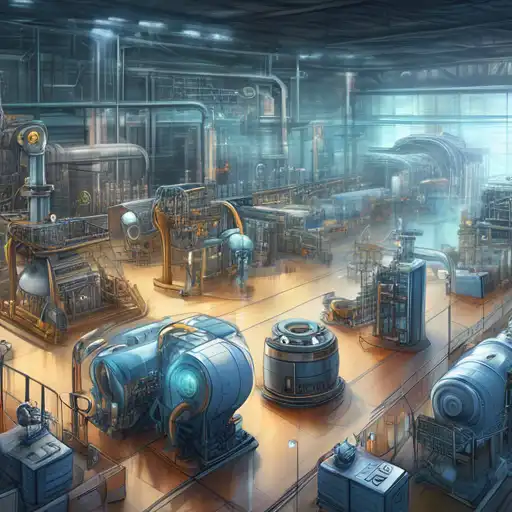The Transformative Role of IoT in Industrial Automation
The advent of the Internet of Things (IoT) has ushered in a new era for industrial automation, transforming traditional manufacturing floors into smart, interconnected ecosystems. This integration of IoT technologies is not just enhancing operational efficiency but is also paving the way for unprecedented levels of productivity and innovation.
Understanding IoT in the Industrial Context
At its core, IoT refers to the network of physical devices embedded with sensors, software, and other technologies aimed at connecting and exchanging data with other devices and systems over the internet. In the industrial sector, this translates to machines and equipment that can communicate in real-time, leading to smarter decision-making and streamlined processes.
Key Benefits of IoT in Industrial Automation
- Enhanced Efficiency: IoT devices enable real-time monitoring and control of industrial processes, significantly reducing downtime and improving efficiency.
- Predictive Maintenance: By analyzing data collected from sensors, companies can predict equipment failures before they occur, minimizing unplanned downtime.
- Energy Savings: Smart sensors can optimize energy use, leading to substantial cost savings and a reduced environmental footprint.
- Improved Safety: IoT technologies can monitor hazardous conditions and alert workers, thereby enhancing workplace safety.
Challenges and Considerations
Despite its numerous advantages, the integration of IoT into industrial automation is not without challenges. Issues such as data security, interoperability, and the need for skilled personnel to manage these advanced systems are critical considerations for businesses looking to adopt IoT solutions.
The Future of Industrial Automation with IoT
As we move towards Industry 4.0, the role of IoT in industrial automation is set to become even more pivotal. With advancements in AI and machine learning, the potential for autonomous operations and further efficiency gains is immense. The future promises a seamless blend of physical and digital worlds, where smart factories operate with minimal human intervention.
For businesses looking to stay competitive, embracing IoT in industrial automation is not just an option but a necessity. The journey towards digital transformation may be complex, but the rewards in terms of productivity, efficiency, and innovation are unparalleled.
Explore more about smart manufacturing and how it's shaping the future of industries worldwide.
